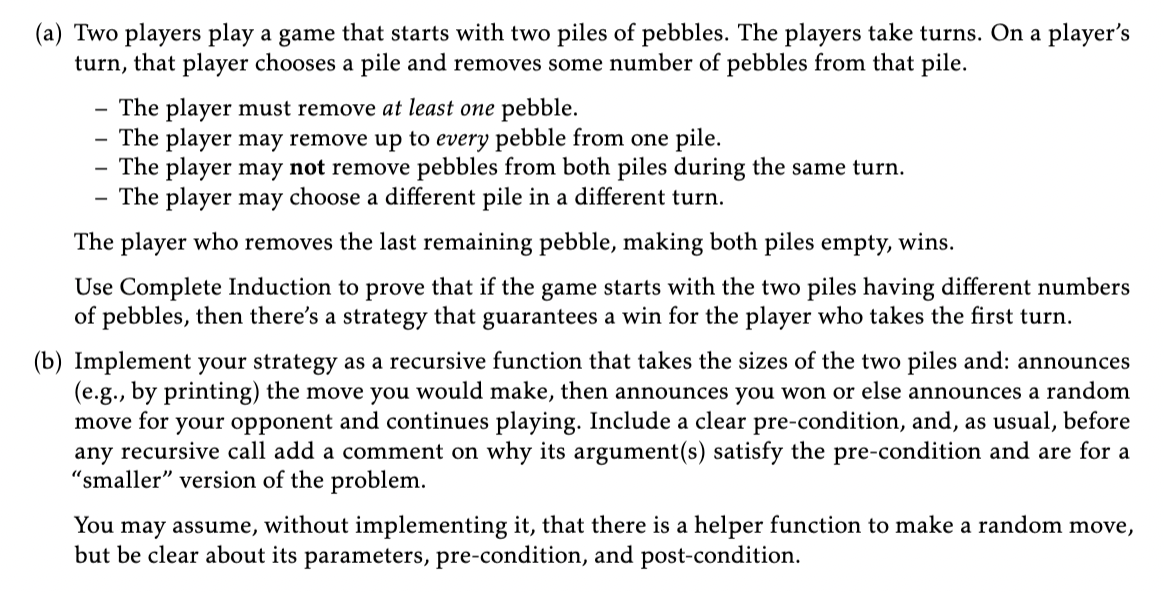Question: (a) Two players play a game that starts with two piles of pebbles. The players take turns. On a player's turn, that player chooses

(a) Two players play a game that starts with two piles of pebbles. The players take turns. On a player's turn, that player chooses a pile and removes some number of pebbles from that pile. The player must remove at least one pebble. The player may remove up to every pebble from one pile. The player may not remove pebbles from both piles during the same turn. The player may choose a different pile in a different turn. The player who removes the last remaining pebble, making both piles empty, wins. Use Complete Induction to prove that if the game starts with the two piles having different numbers of pebbles, then there's a strategy that guarantees a win for the player who takes the first turn. (b) Implement your strategy as a recursive function that takes the sizes of the two piles and: announces (e.g., by printing) the move you would make, then announces you won or else announces a random move for your opponent and continues playing. Include a clear pre-condition, and, as usual, before any recursive call add a comment on why its argument(s) satisfy the pre-condition and are for a "smaller" version of the problem. You may assume, without implementing it, that there is a helper function to make a random move, but be clear about its parameters, pre-condition, and post-condition.
Step by Step Solution
There are 3 Steps involved in it
Part a Proof by Complete Induction Lets prove the statement using complete induction Base Case n1 If there is one pebble in each pile the player can t... View full answer

Get step-by-step solutions from verified subject matter experts


